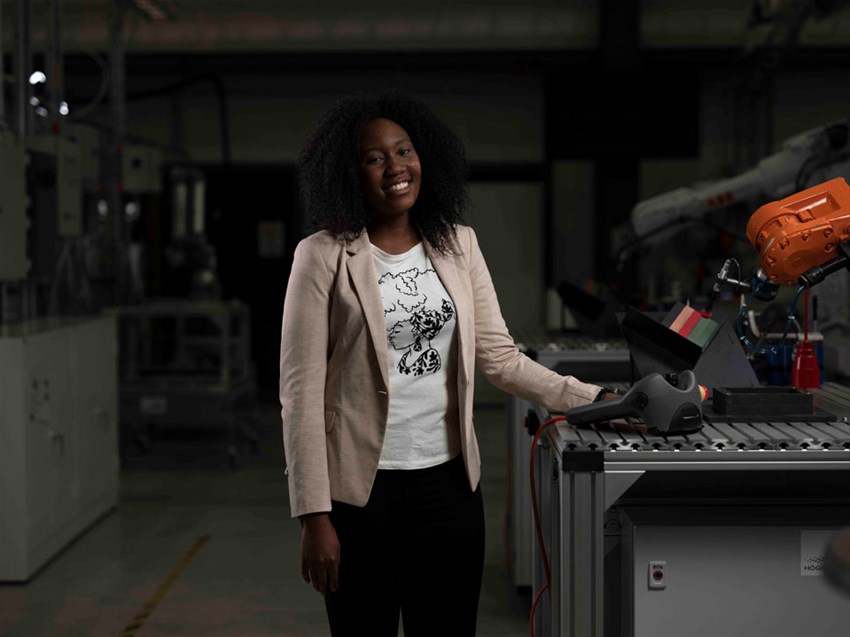For Nozinhle working life is a natural part of her education
Nozinhle Primrose Khumalo, from Zimbabwe, is an international student studying Masters in Robotics and Automation. Before she started her studies at University West, she worked in the manufacturing industry and since Nozinhle started her studies in August the courses have all been a mixture of theory lectures and practical work.

The main reason Nozinhle chose to study in Sweden was due to the country's innovation and the fact that it is technologically advanced. She felt that this would be a suitable environment for her to learn and gain practical experience in the engineering field.
- Sweden stood out amongst other technologically advanced countries because of its commitment to sustainability, which I resonate with, and the effort and emphasis that the nation puts in ensuring an equal society for all, says Nozinhle.
Nozinhle tells us that the differences between Zimbabwe and Sweden are many. Zimbabwe is still a developing country and is yet to get to the technological advancements that Sweden currently has.
- I'm originally from Bulawayo, which is Zimbabwe's second-largest city. I studied for a Bachelor of Engineering (Honours) degree in Electronic Engineering at the National University of Science and Technology. I also played volleyball and was part of the Zimbabwe Women's Senior Volleyball team.
When Nozinhle was looking for a program, she wanted a program that would help her gain more insight into the technological advancement’s companies are adopting to improve the productivity and efficiency of their operations.
- That is why I decided to apply for this program at University West, says Nozinhle.
A significant part of the credits for each module is obtained through practical assignments, which she likes a lot. To Nozinhle, WIL (work-integrated learning) means having a curriculum whose focus is on equipping students with industry-relevant skills. This means, rather than theory, the focus is on giving practical knowledge and experience for students to enable them to integrate well into the industry after their studies.
- In my program, WIL is integrated into education, where we get to do both simulation and real-life programming of robots. This is in line with what happens in the industry, says Nozinhle.
- In 5 years, I hope to be working as an Automation or Robotics Engineer, gaining technical industry experience to prepare myself for a career in engineering consultancy, focusing on using new technologies to achieve more efficient and environmentally sustainable solutions for manufacturing companies, concludes Nozinhle.


